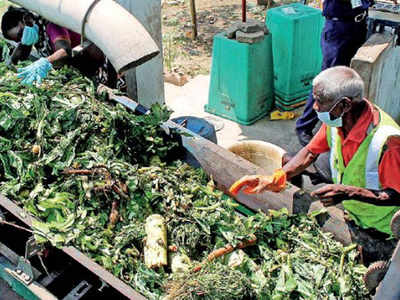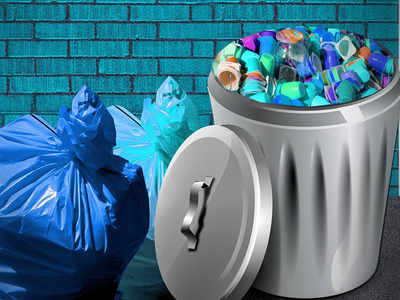The Hindu 04.05.2013
Going gaga over garbage

Coimbatore as part of the summer camp organised by Siruthuli recently.-
Photos: M. Periasamy.
Eco-conscious householders share tips on recycling waste, growing vegetables.
The VOC Park buzzes with excited children drowning out
the noisy birds. Around 100 students, from different schools in
Coimbatore are gathered here to participate in the six day-long “Nurture
Nature Summer Camp 2013” organised by Siruthuli. Today, the kids will
visit two households in the city that use garbage in an innovative way.
Before
the excursion, R. R. Balasundaram and P. Vincent brief the children
about importance of energy conservation and waste re-use. Balasundaram
who has installed solar panels in his house tells them how solar energy
is a cheap source of electricity. “The initial cost is high. However,
this should not be seen as a waste of money, but an investment. Their
benefits are life-long.” Vincent, who cultivates vegetables in his
garden, informs them how every time we waste food, we waste water. “It
is called virtual water, as you cannot see it. But when you waste a
banana, you waste litres of water that were used to grow it.”
And,
then the journey begins. The first halt is at J. Leelavathi’s, where
she has installed a bio-gas plant. The children walk around the huge
cylinder-shaped plant. Gathering the children around him, Suresh from
Siruthuli explains how it works. “Initially, you need to put some cow
dung as the process needs bacteria. Feed in the waste mixed with water
through an opening. It then takes just a couple of hours to break the
waste down and the gas to be produced. This semi-liquid residue that
comes out of another opening, when diluted with water, is excellent
manure for plants.”
“Will the gas leak?” asks a
parent. “No, bio-gas is light. It will only rise up and escape into the
air.” The gas tube connected to the plant runs through the window into
the kitchen, and is connected to a separate stove. Leelavathi calls the
children into her kitchen and shows them the stove. “The left over food,
water with which we wash rice, egg shells and vegetable peels can be
used. But do not use bones and plastic waste,” she warns them.
The
bus then takes the children to Chitra Krishnaswamy’s house. Chitra has a
terrace garden and makes manure out of her kitchen wastes. She shows
her audience huge terracotta jars in which she prepares her manure. “I
mix vegetable waste, red soil and dry leaves. Dry leaves are compulsory
as they do not let worms and maggots thrive on the wet kitchen waste,”
she explains.
Her terrace is a mini farm with
pine-apples, sapotas, lady’s fingers, brinjals, varieties of tomatoes,
carrots, chillies, keerais and even giant white pumpkins!
“I
began cultivating the terrace garden, just six months ago. For the past
two months, we have not bought any vegetable from the market. These are
much tastier,” she says. Chitra then allows the children to plant
radishes, chillies and tomatoes in plastic tubs. She promises them that
she will update them on their progress and gift them the veggies, once
they are ready.
One of the students Bharath is
inspired enough to declare, “Making a kitchen garden is not complicated
at all. You can plant vegetables in plastic buckets. I will definitely
try my hand at kitchen gardening, when I get back home.”
When you waste a banana, you waste litres of water used to grow it.


